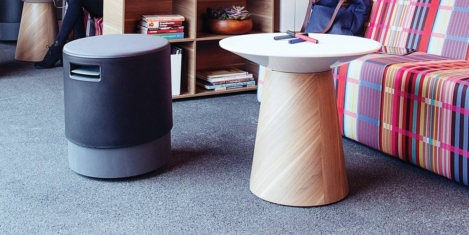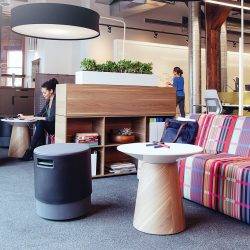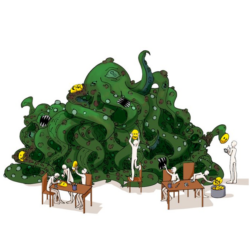To provide the best experiences, we use technologies like cookies to store and/or access device information. Consenting to these technologies will allow us to process data such as browsing behaviour or unique IDs on this site. Not consenting or withdrawing consent, may adversely affect certain features and functions.
The technical storage or access is strictly necessary for the legitimate purpose of enabling the use of a specific service explicitly requested by the subscriber or user, or for the sole purpose of carrying out the transmission of a communication over an electronic communications network.
The technical storage or access is necessary for the legitimate purpose of storing preferences that are not requested by the subscriber or user.
The technical storage or access that is used exclusively for statistical purposes.
The technical storage or access that is used exclusively for anonymous statistical purposes. Without a subpoena, voluntary compliance on the part of your Internet Service Provider, or additional records from a third party, information stored or retrieved for this purpose alone cannot usually be used to identify you.
The technical storage or access is required to create user profiles to send advertising, or to track the user on a website or across several websites for similar marketing purposes.
 With over a third (36 percent) of workers concerned about the impact of technological changes and what this might mean for them, a new report from Virgin Media O2 Business claims that many people believe new tech will offer them a better work-life balance. According to the report, the pandemic accelerated remote and hybrid work, mostly benefitting desk-based workers. Meanwhile, deskless workers like teachers, nurses and engineers saw limited long-term change despite many organisations comprising both types of workers. (more…)
With over a third (36 percent) of workers concerned about the impact of technological changes and what this might mean for them, a new report from Virgin Media O2 Business claims that many people believe new tech will offer them a better work-life balance. According to the report, the pandemic accelerated remote and hybrid work, mostly benefitting desk-based workers. Meanwhile, deskless workers like teachers, nurses and engineers saw limited long-term change despite many organisations comprising both types of workers. (more…)














 According to
According to 
 For many people, a large portion of the day is spent at the workplace. In fact, the average person will spend 90,000 hours at work over a lifetime. The Covid-19 pandemic saw the typical ‘workplace’ setting change for many people, after businesses around the globe were forced to adjust to a ‘work-from-home’ model. Now, three years later, we are starting to see more employees return to the office, with large corporations including JPMorgan, Chase, Apple and Google all announcing plans to bring their workers back to base.
For many people, a large portion of the day is spent at the workplace. In fact, the average person will spend 90,000 hours at work over a lifetime. The Covid-19 pandemic saw the typical ‘workplace’ setting change for many people, after businesses around the globe were forced to adjust to a ‘work-from-home’ model. Now, three years later, we are starting to see more employees return to the office, with large corporations including JPMorgan, Chase, Apple and Google all announcing plans to bring their workers back to base. 















December 8, 2023
Inclusive office design is essential if we want offices to be worth the commute
by Guzman de Yarza Blache • Comment, Workplace design